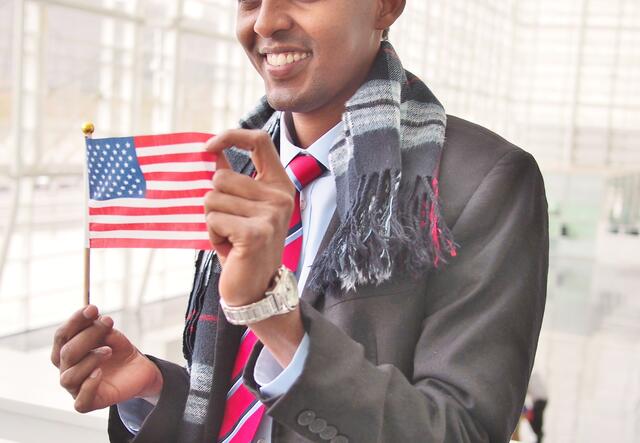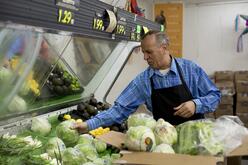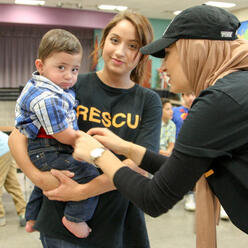
On January 27th, we passed the one-year mark of the Administration’s first Travel Ban. Starting on January 27, 2017, and for 120 days, this White House declared that the most vulnerable people on our planet would find no safety on America’s shores.
It became a year of legal morass, of diminished hope, and for thousands of families – no relief in sight after playing by the rules. And, it targeted the most vulnerable among us. Women and children – nearly 75% of all refugees in 2016 were women and children – would not find safe harbor. However, it also blocked those who helped our armed forces in battle abroad. All of whom risked grave danger to ensure a better life, a better future, in the United States.
There are 65 million refugees in the world today. Of those, only 1 percent – the most critical cases – are resettled. These include those who helped our armed forces at the risk of their own lives, people with urgent medical concerns who cannot be treated in camps, and women and children in grave danger. In 2016, Arizona welcomed 4,110 refugees – but, in 2017, only 2,250 were able to arrive past the Trump Administration’s measures. At the national level, we estimate around 20,000 refugees will ultimately arrive to the United States this year. For those left waiting and in danger, American leadership is sorely missed.
The Refugee Resettlement program is a uniquely American innovation: that our nation tackle global problems, and protect the world’s most vulnerable people, right here in the United States. The program was based on the ideals that families ought to be together, that our children could have a better future than we had, and that hard work would be treasured. It was Ronald Reagan who began this tradition, and following presidencies who strengthened it.

This tradition is something that our organization, the International Rescue Committee (IRC), has the pleasure to work with day in and day out.
Within months of leaving refugee camps and escaping violence and persecution, these new Americans were settling down in Phoenix: working hard, paying taxes, and contributing to our community. One refugee, Omar, opened a restaurant and store, which together employ 20 workers. Another, Taghreed, attends ASU, studying to become an optometrist. Isatta worked at night while studying during the day to become a US citizen, so that her children could have a better life. 84% of refugees resettled by the IRC in Phoenix are economically self-sufficient in 6 months. As the assault on refugee families continued to unfold through the year, we stood with them. We still believe in them.

Despite the attacks from Washington on those we serve, we have seen an outpouring of support to make refugees welcome here in Phoenix. IRC’s volunteers, mentors, and community partners strive to make our city live up to the ideals that this program was created to bring to life.
It was Ronald Reagan who said, “More than any other country, our strength comes from our own immigrant heritage and our capacity to welcome those from other lands.” We must remember our common history and our common family values. Phoenix and America must, day in and day out, live up to the legacy, and the strength, of our “common immigrant heritage.”
Donna Magnuson
Executive Director, International Rescue Committee in Phoenix
#StandWithRefugees Today! Support our work at https://help.rescue.org/donate/us-phoenix-az or take action at https://ircaction.org/